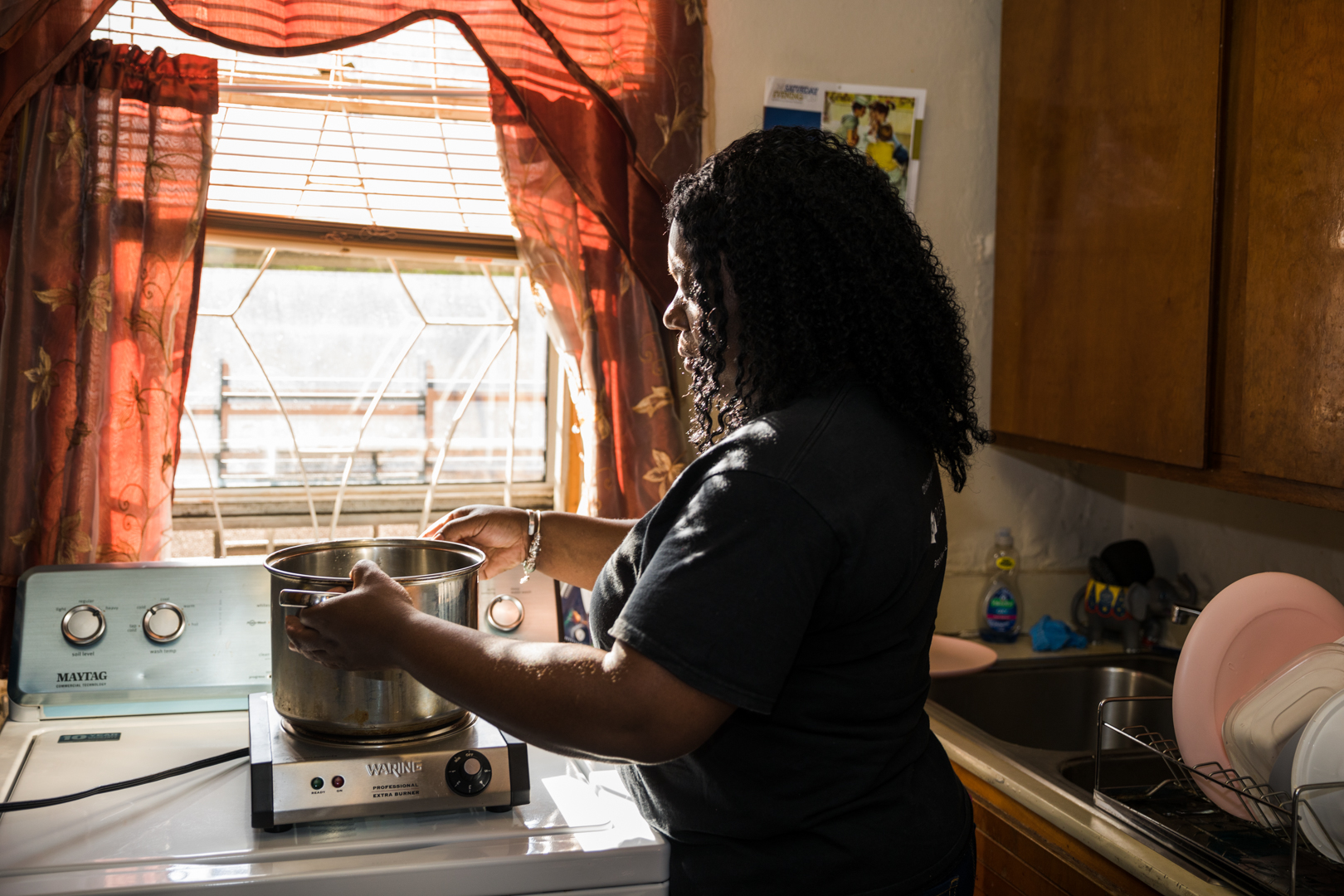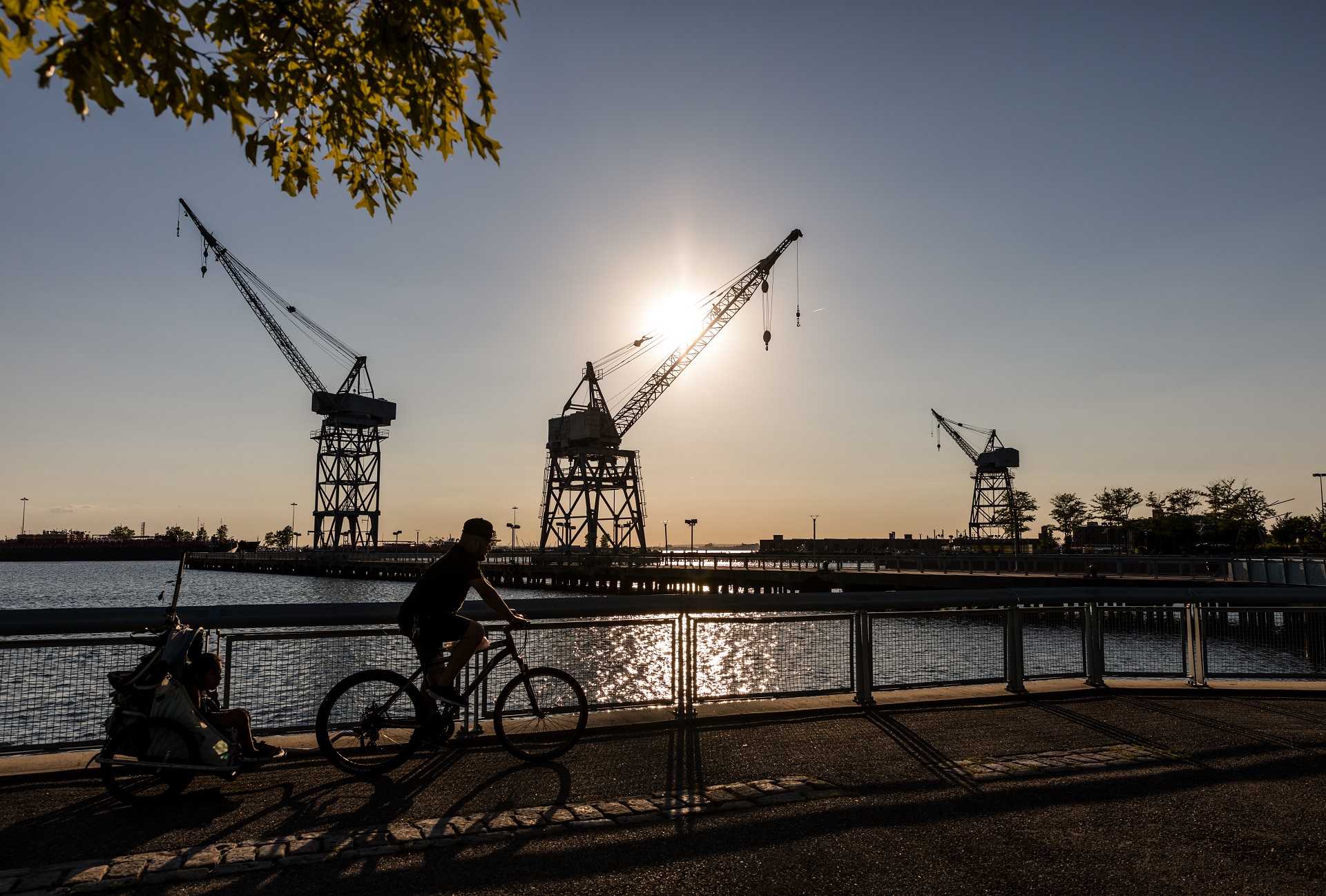After months without gas, Red Hook NYCHA residents demand reimbursement
'They give us the hot plate and then they just disappear.'

Sherry Roberson prepares to boil a pot of water on the hot plate NYCHA provided for her. She cooks for a four-person family — but the public housing complex in which she lives had its heat turned off for months. Photo: Paul Frangipane/Brooklyn Eagle
When roughly 60 families in the Red Hook Houses had their gas turned off on Feb. 13, many believed it would be a temporary issue — nothing more than a minor inconvenience.
But soon days turned to weeks, and weeks turned to months. Though the families had their gas restored late last month, they’re now demanding NYCHA reimburse them for money laid out on meals.
NYCHA passed out a single hot plate for each apartment, but residents said the device was dangerous and inadequate to cook for large families. Those who tried to use more than one blew their apartment’s electric fuse.
